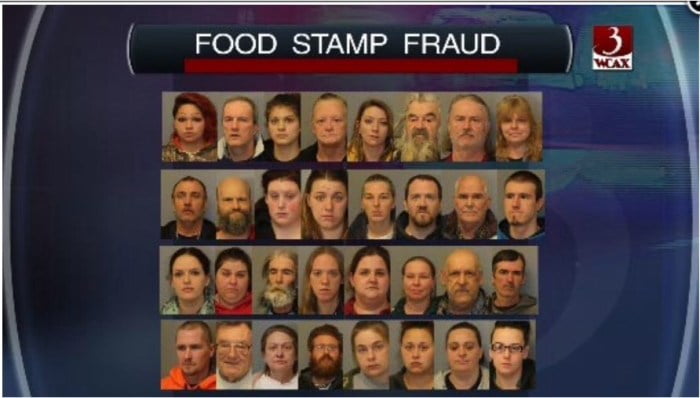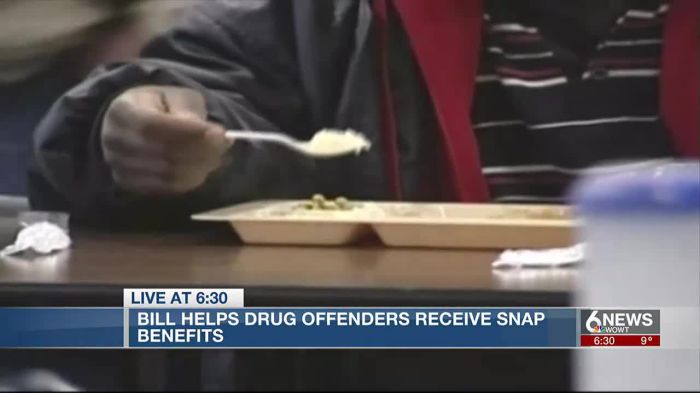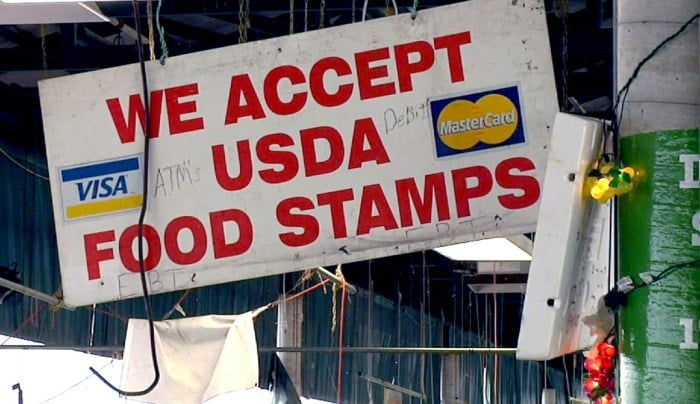The question of whether convicted felons can receive food stamps in North Carolina is a complex one with important implications for both individuals and families. This article will explore the eligibility criteria, restrictions, and limitations surrounding food stamp benefits for convicted felons in North Carolina.
We will also discuss the impact of food stamp eligibility on the lives of convicted felons and their families, as well as the challenges and barriers they may face in accessing these benefits.
Food stamps, also known as the Supplemental Nutrition Assistance Program (SNAP), are a vital source of food assistance for low-income individuals and families. They provide monthly benefits that can be used to purchase food at authorized retailers. In North Carolina, the eligibility criteria for food stamps are generally the same for convicted felons as they are for other individuals.
However, there are some special circumstances and exceptions that may apply.
Eligibility Criteria

In North Carolina, convicted felons may be eligible for food stamps if they meet specific criteria. These include:
- Being a US citizen or a qualified non-citizen
- Meeting income and asset limits
- Living in North Carolina
- Having a Social Security number
- Meeting work requirements, if applicable
Special Circumstances
In some cases, convicted felons may be eligible for food stamps even if they do not meet all of the general eligibility criteria. These include:
- Being homeless
- Being disabled
- Being over 60 years old
- Being a member of a household with a child under 18
Application Process
To apply for food stamps, convicted felons can either:
- Apply online at the North Carolina Division of Social Services website
- Apply in person at their local county Department of Social Services office
Required documentation includes:
- Proof of identity (such as a driver’s license or state ID card)
- Proof of income (such as pay stubs or bank statements)
- Proof of expenses (such as rent or mortgage payments)
Restrictions and Limitations
Individuals convicted of certain drug-related felonies face restrictions on their eligibility for food stamp benefits. These restrictions include:
Duration of Ineligibility Periods
The duration of ineligibility varies depending on the type of felony conviction and the number of prior convictions. For first-time offenders, the ineligibility period is 12 months. For second-time offenders, the ineligibility period is 24 months. For third-time offenders, the ineligibility period is permanent.
Exceptions
There are a few exceptions to these ineligibility periods. Individuals who are convicted of drug-related felonies that are not related to the sale or distribution of drugs may be eligible for food stamps if they can demonstrate that they have successfully completed a drug treatment program.
Impact of Incarceration
Individuals who are incarcerated are not eligible for food stamps. However, they may be eligible for other forms of food assistance, such as the Supplemental Nutrition Program for Women, Infants, and Children (WIC).
Program Benefits and Services

Convicted felons who meet the eligibility criteria for the Food Stamp Program in North Carolina can receive a range of benefits and services to assist them in meeting their nutritional needs.
Types and Amount of Benefits
The amount of food stamp benefits a convicted書店felon receives is based on their household size, income, and certain deductions. The maximum monthly benefit amount for a one-person household is $281, and for a two-person household, it is $535. For larger households, the benefit amount increases.
Distribution and Use of Benefits
Food stamp benefits are distributed through an Electronic Benefits Transfer (EBT) card. The EBT card can be used to purchase eligible food items at authorized retail stores.
Additional Services and Support
In addition to food stamp benefits, the program also provides access to nutrition education and other support services. These services can help convicted felons learn about healthy eating habits, manage their food budget, and connect with other resources in the community.
Impact on Individuals and Families

The eligibility of convicted felons for food stamps has a significant impact on their lives and the well-being of their families. Access to food assistance can contribute to rehabilitation and reintegration, while also presenting challenges and barriers.
Access to Food Assistance
Food stamps provide convicted felons with access to nutritious food, which is essential for maintaining good health and cognitive function. This support can help them overcome the challenges of re-entering society, such as finding employment and stable housing.
Rehabilitation and Reintegration
Food stamps can contribute to rehabilitation by reducing the stress and financial burden associated with food insecurity. This allows convicted felons to focus on addressing the underlying causes of their criminal behavior and developing positive coping mechanisms.
Challenges and Barriers
Convicted felons may face challenges and barriers in accessing food stamps, including:
- Stigma and Discrimination: Convicted felons may experience stigma and discrimination when applying for food stamps.
- Lack of Information: Convicted felons may not be aware of their eligibility for food stamps or how to apply.
- Transportation Issues: Convicted felons may have difficulty accessing food stamp distribution centers due to lack of transportation.
Final Summary
In conclusion, the eligibility of convicted felons for food stamps in North Carolina is a complex issue with a variety of factors to consider. While there are some restrictions and limitations in place, convicted felons may still be eligible for benefits depending on their individual circumstances.
It is important to understand the eligibility criteria and application process in order to determine if you qualify for food stamps. If you are a convicted felon and you are struggling to put food on the table, you should contact your local social services office to learn more about your eligibility and apply for benefits.
FAQ Summary
Can convicted felons get food stamps in North Carolina?
Yes, convicted felons may be eligible for food stamps in North Carolina depending on their individual circumstances.
What are the eligibility criteria for convicted felons to receive food stamps in North Carolina?
The eligibility criteria for convicted felons to receive food stamps in North Carolina are generally the same as they are for other individuals. However, there are some special circumstances and exceptions that may apply.
What are the restrictions and limitations on food stamp benefits for convicted felons?
There are some restrictions and limitations on food stamp benefits for convicted felons. For example, convicted felons who are serving a sentence of more than one year in prison are not eligible for food stamps.
How can convicted felons apply for food stamps in North Carolina?
Convicted felons can apply for food stamps in North Carolina by contacting their local social services office.